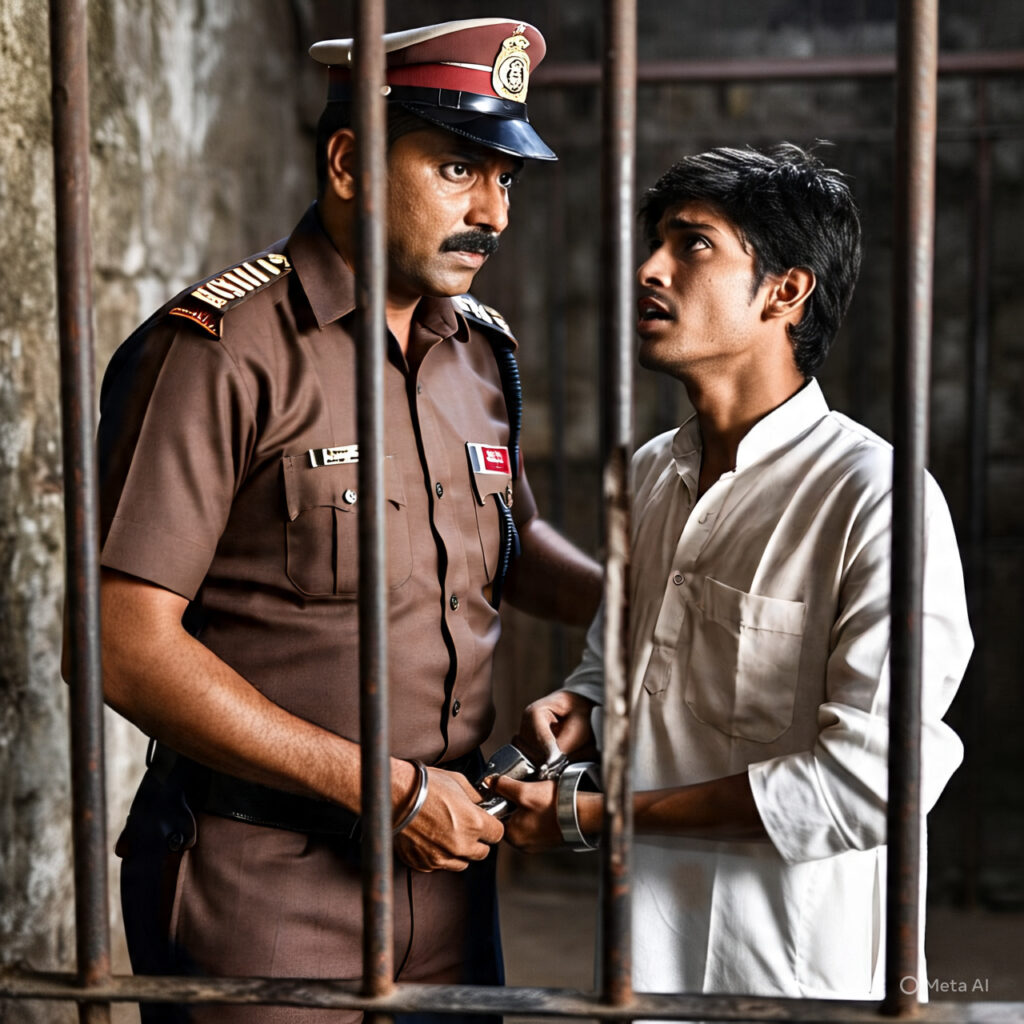The arrest and detention of individuals by the police in India is governed by a well-defined legal framework, primarily laid down in the Criminal Procedure Code (CrPC) and the Constitution of India. The law seeks to balance the interests of investigation and justice with the protection of individual liberty. In this context, the duration for which the police can lawfully detain a person is strictly regulated.
The key provisions dealing with police custody and judicial scrutiny are:
- Section 56 CrPC
- Section 57 CrPC
- Section 167 CrPC
- Article 22(2) of the Constitution of India
Section 56 CrPC – Duty to Produce Without Delay
Section 56 mandates that a person who is arrested by a police officer without a warrant must be taken before a Magistrate without unnecessary delay. This section is crucial because it prohibits arbitrary and prolonged detention by law enforcement. It places a legal obligation on the police to act promptly and lawfully once a person is arrested.
Section 57 CrPC – Detention Not to Exceed 24 Hours
Section 57 further strengthens the right of an arrested individual by stipulating that no police officer shall detain a person in custody for more than 24 hours without the authority of a Magistrate. The 24-hour period excludes the time necessary for the journey from the place of arrest to the Magistrate’s court. This provision reflects a deep-rooted principle of criminal jurisprudence that aims to prevent custodial abuse.
Important: Section 57 should always be read together with Section 56. While Section 56 imposes a general duty of timely production, Section 57 sets a strict outer time limit.
Article 22(2) of the Constitution – Fundamental Right Against Arbitrary Detention
The constitutional guarantee under Article 22(2) mirrors and reinforces Section 57 CrPC. It provides that:
“Every person who is arrested and detained in custody shall be produced before the nearest magistrate within a period of twenty-four hours of such arrest… and no such person shall be detained in custody beyond the said period without the authority of a magistrate.”
This is a fundamental right, enforceable in a court of law. Violation of this constitutional provision can render the detention illegal and can lead to departmental action against the concerned officers, and even criminal proceedings in cases of abuse.
Section 167 CrPC – Exception to the 24-Hour Rule
While Section 56 and 57 uphold the 24-hour limit, Section 167 CrPC provides a limited exception. If the police cannot complete the investigation within 24 hours and need further custody, they must produce the accused before a Magistrate along with a copy of the case diary and seek remand. The Magistrate can then authorize detention as follows:
- Police Custody: Up to 15 days in total.
- Judicial Custody (Jail):
- Up to 60 days for offences punishable with less than 10 years.
- Up to 90 days for offences punishable with death, life imprisonment, or imprisonment not less than 10 years.
If the investigation is not completed within this period, the accused has a right to default bail under Section 167(2).
Note: Even under this exception, continuous detention without judicial scrutiny is not allowed. The Magistrate plays a vital oversight role in authorizing and reviewing custody.
Key Judicial Interpretations
Indian courts have consistently upheld the sanctity of these provisions:
- In Joginder Kumar v. State of U.P. (1994), the Supreme Court emphasized that arrest should not be routine and must be justified.
- In DK Basu v. State of West Bengal (1997), the Court laid down specific guidelines for arrest and detention, including rights of the accused like informing a friend or relative and medical examination.
Conclusion
To summarize, the police cannot keep a person in lock-up beyond 24 hours without producing them before a Magistrate. This rule is enshrined in Section 56, 57 CrPC and Article 22(2) of the Constitution. Section 167 CrPC provides an exception where, under judicial supervision, custody may be extended for further investigation.
These legal safeguards are fundamental to protecting individual liberty and preventing abuse of power by the police. Every citizen should be aware of these rights to ensure justice and accountability.

